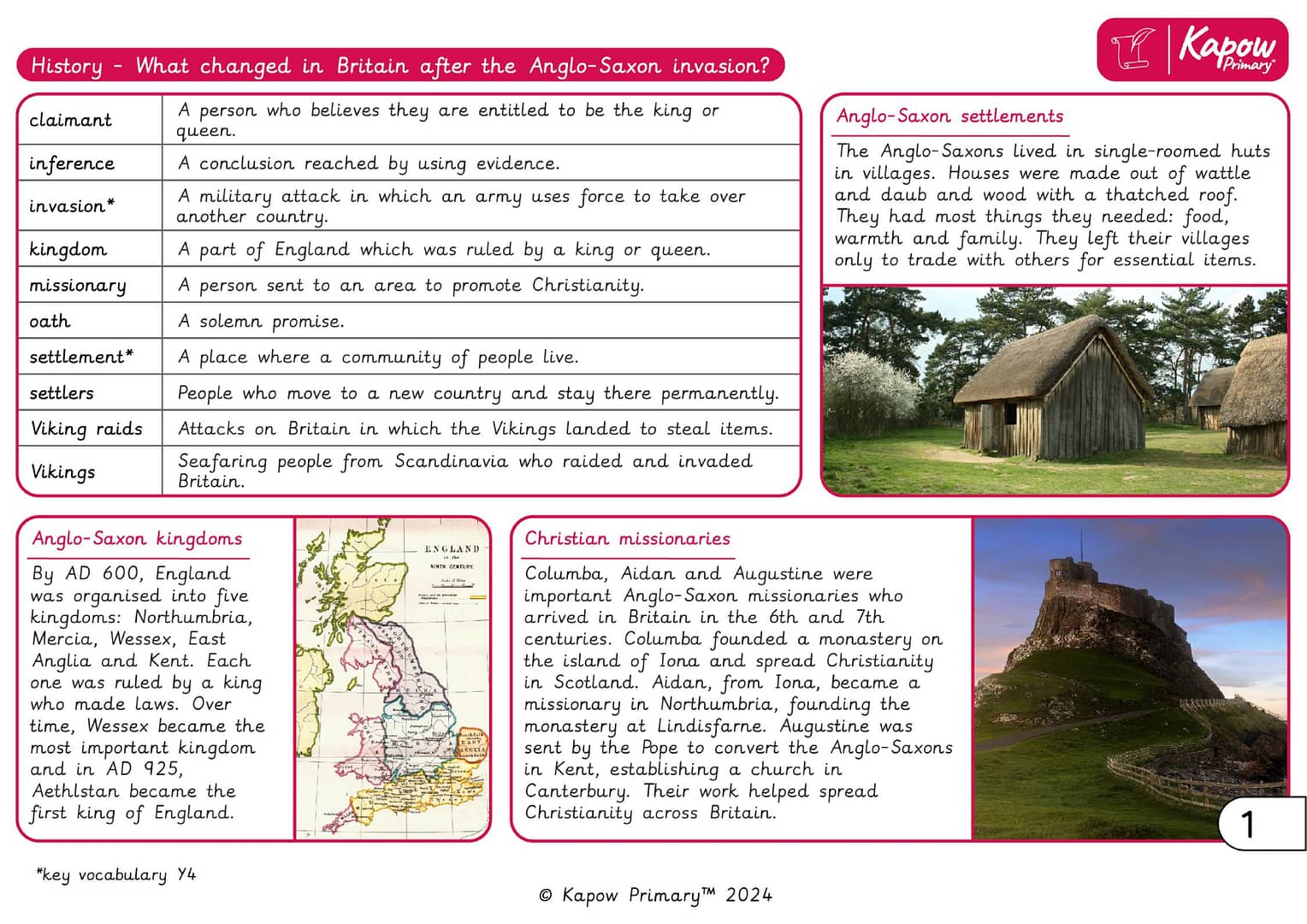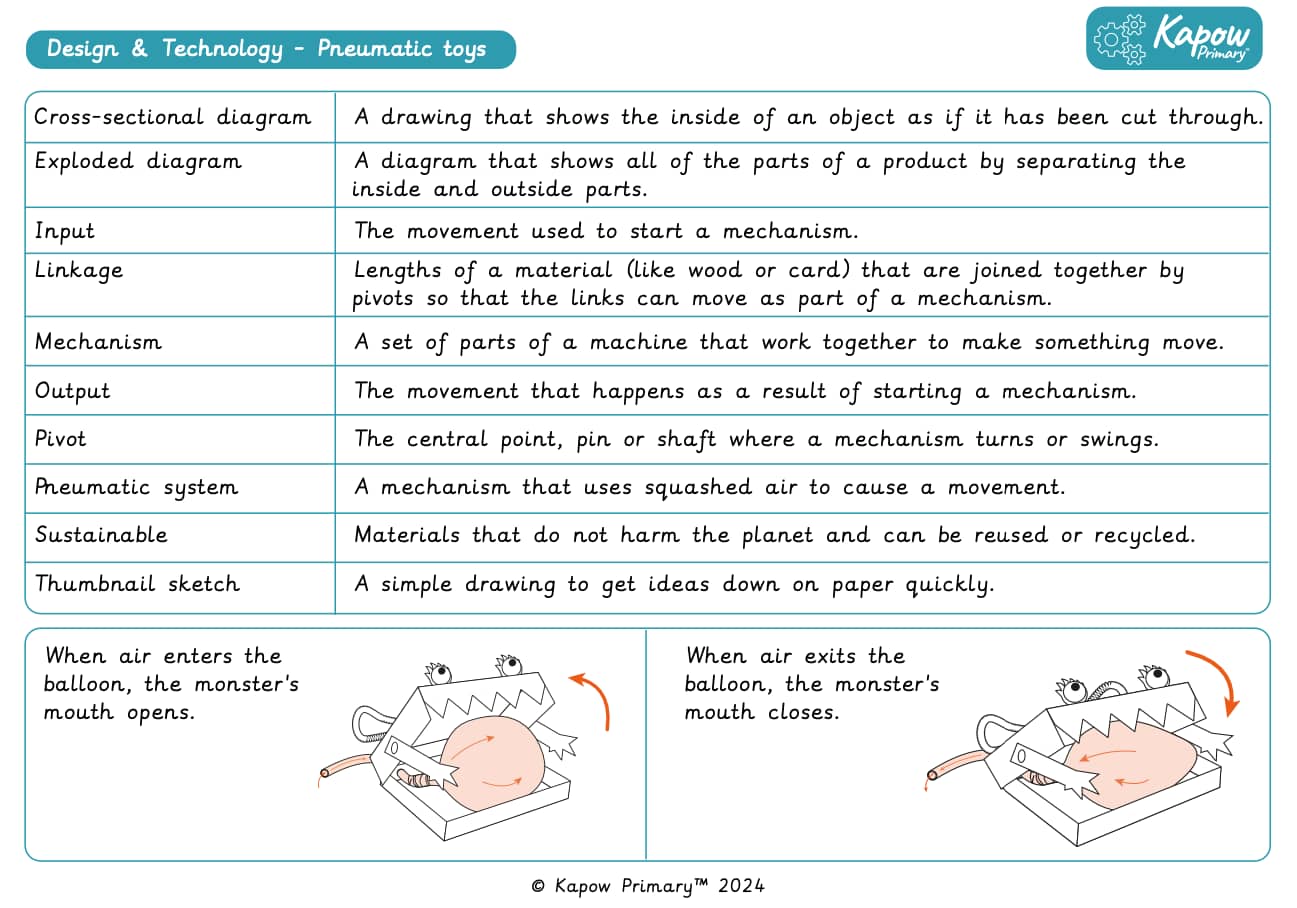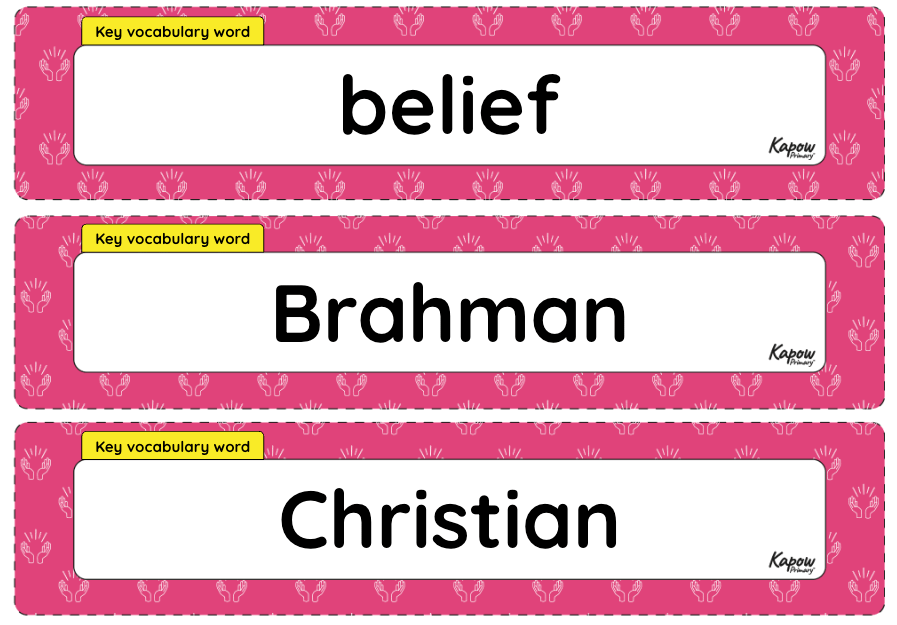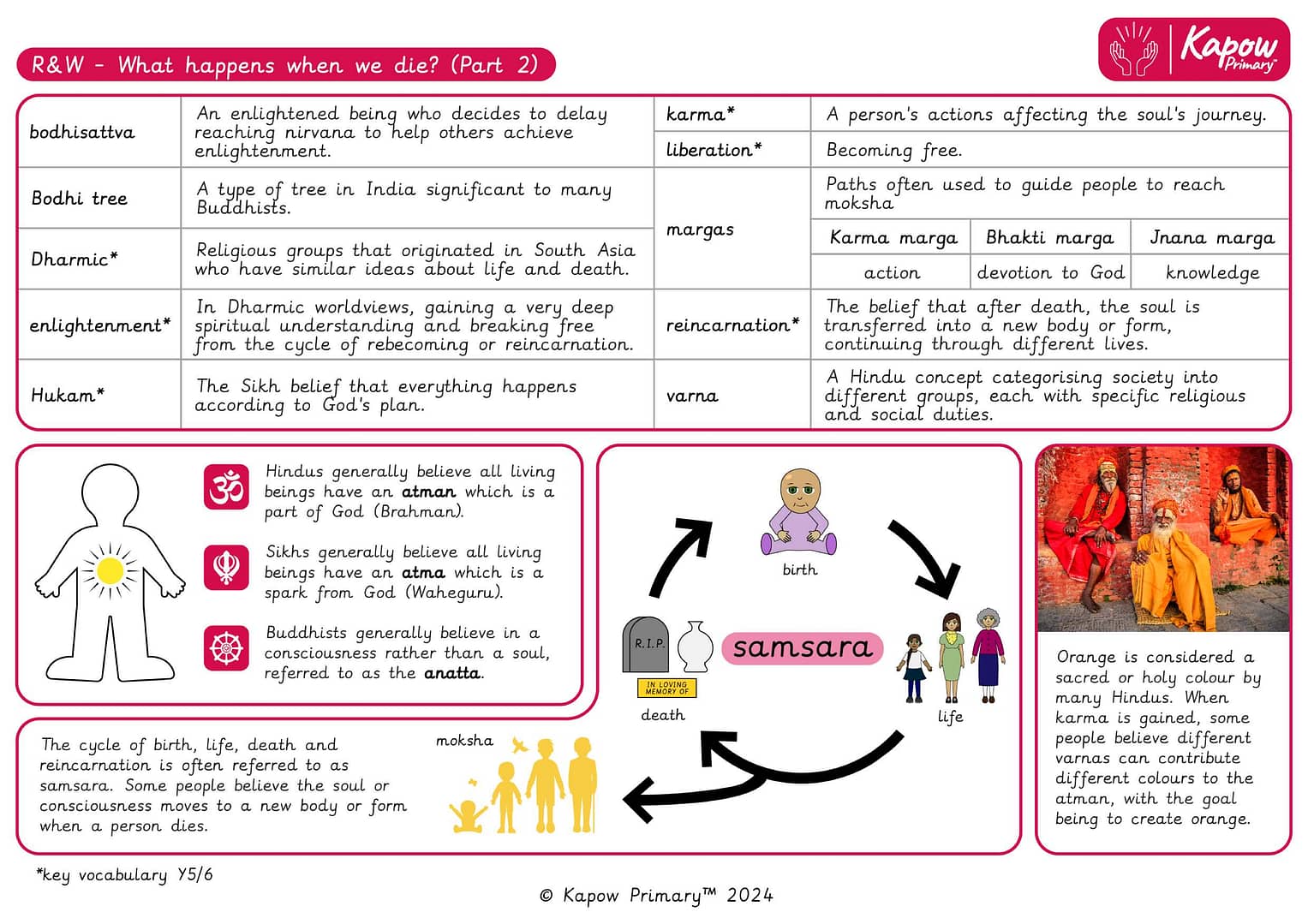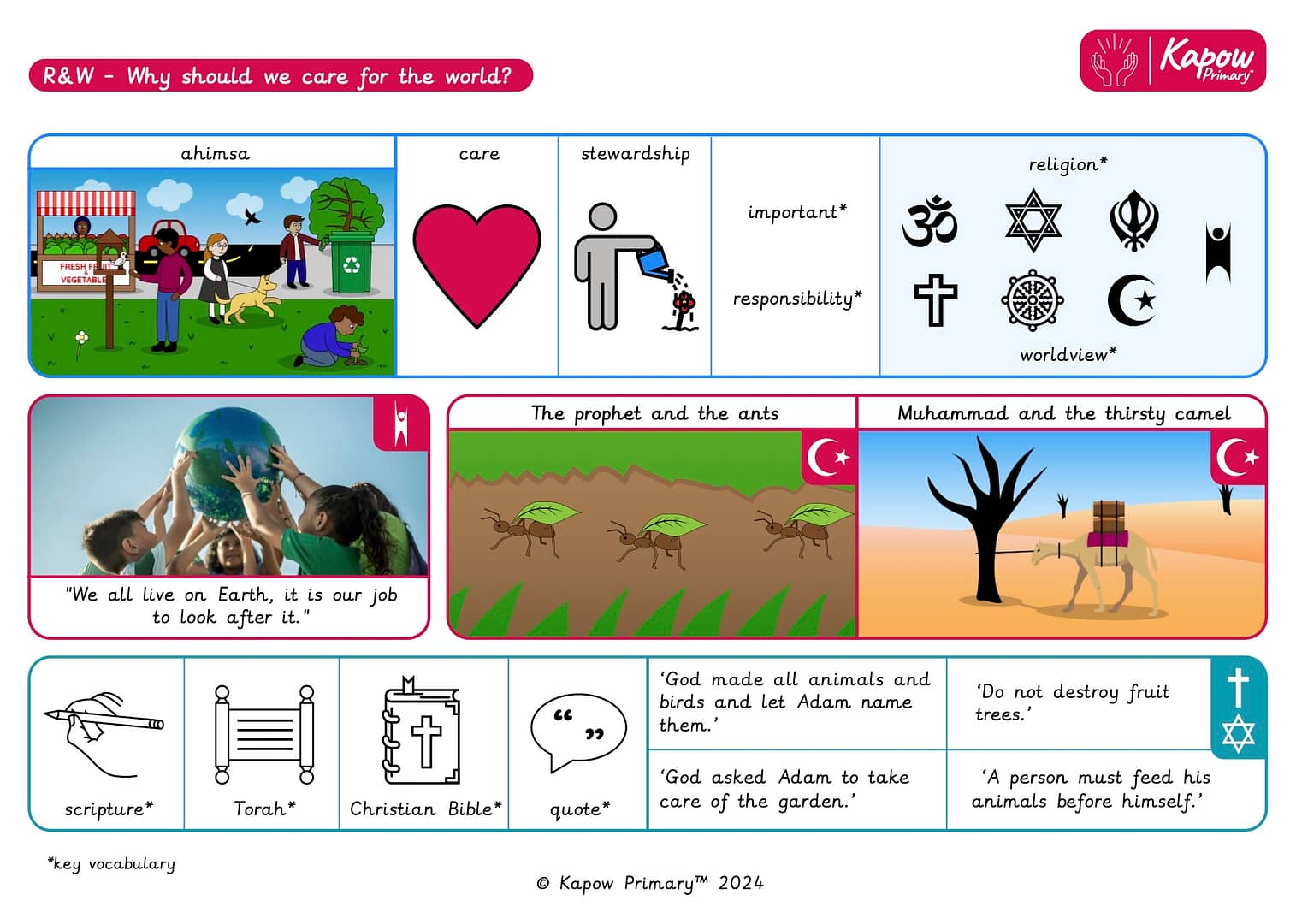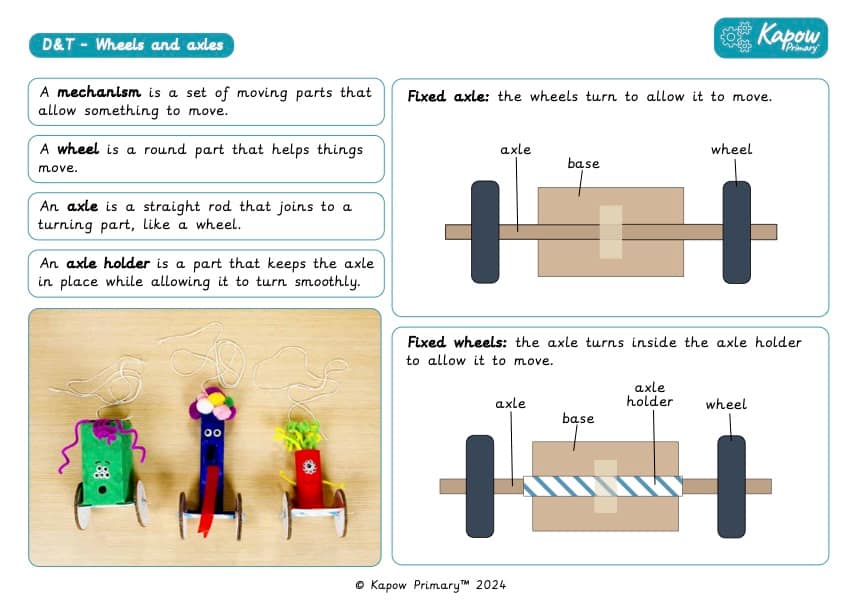Featured Document Type: Knowledge organiser
Knowledge organiser: Drawing: Expressive drawing and mark making
Knowledge organiser – History Y4: What changed in Britain after the Anglo-Saxon invasion?
Knowledge organiser – D&T Y3: Mechanical systems: *New* Pneumatic toys
Vocabulary display – R&W Y1/2 (A): Why should we care for the world?
This unit vocabulary display includes keywords from the mixed-age unit Religion and worldviews, Y1/2 (A), Why should we care for the world? and additional unit-specific words that may be helpful in a display.
Key vocabulary is clearly labelled on the display, highlighting essential words that the pupils are expected to retain and reuse in future units. Understanding these words enhances comprehension of the subject and supports understanding of prominent organised worldviews.
See the full Religion and worldviews: Progression of key vocabulary.
Knowledge organiser – R&W Y5/6 (A): What happens when we die? (Part 2)
A Knowledge organiser that captures the essential knowledge and skills learnt throughout the mixed-age unit Religion and worldviews, Y5/6 (A), What happens when we die? (Part 2)
This Religion and worldviews resource is designed to support children as they explore beliefs about death in various religious and cultural practices. It highlights key vocabulary and concepts from Dharmic worldviews, including Hindu, Sikh and Buddhist. It is perfect for consolidating essential knowledge and fostering cross-cultural understanding.
Knowledge organiser – R&W Y1/2 (A): Why should we care for the world?
A Knowledge organiser that captures the essential knowledge and skills learnt throughout the mixed-age unit Religion and worldviews, Year 1/2 (A), Why should we care for the world?
This resource is designed to help pupils explore the importance of caring for the Earth through religious teachings and moral responsibilities. It introduces key concepts such as ahimsa, stewardship, and responsibility, with references to stories and quotes from religious texts including the Torah and the Christian Bible. Pupils learn about the symbolic role of humans as caretakers, inspired by teachings like Adam being asked to care for the garden, and Muhammad’s compassion towards animals. Through visual prompts and simplified scripture, this resource supports the development of moral reasoning and cross-religious understanding of environmental care.
Knowledge organiser – R&W Y5/6 (A): What happens when we die? (Part 1)
A Knowledge organiser that captures the essential knowledge and skills learnt throughout the mixed-age unit Religion and worldviews, Year 5/6 (A), What happens when we die? (Part 1).
This resource is designed to support pupils in understanding diverse perspectives on death and the afterlife across different religious and non-religious worldviews. It introduces key concepts such as the soul, atonement, reconciliation, and beliefs about the afterlife in Christianity, Islam, Judaism and Humanism. Terms like Jannah, Olam Ha-Ba, Gehinnom, and purgatory are explained, alongside traditions such as Yom Kippur and Dia de los Muertos. The organiser explores how people honour the dead, seek forgiveness, and find comfort through rituals and beliefs, highlighting how views on death are shaped by culture, faith, and personal interpretation. It is ideal for promoting reflection and respectful dialogue about life, death, and legacy.



